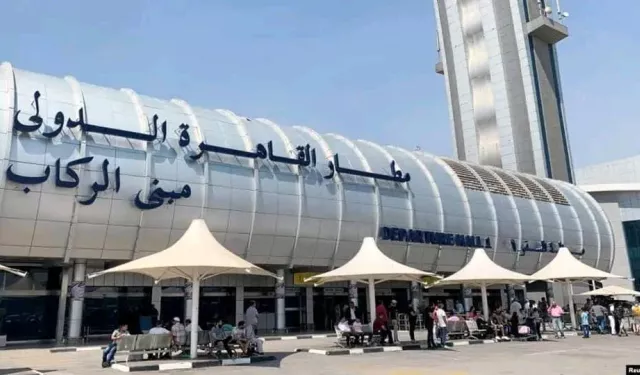A US-led consortium, spearheaded by Hill International, has submitted a comprehensive proposal for the overhaul of Terminal 4 at Cairo International Airport, according to a US Embassy statement reviewed by Al Manassa.
A senior official at Egypt’s Ministry of Civil Aviation said the plan aims to boost the terminal’s capacity from 3 million to 7 million passengers annually.
Minister of Civil Aviation Sameh Elhefny said the ministry is pursuing an ambitious strategy to transform Egypt’s airports into fully integrated economic hubs. The initiative, launched in coordination with the International Finance Corporation (IFC), includes involving the private sector in the operation and development of 11 key airports.
“Our aim is to enhance regional competitiveness and attract foreign investment by aligning with international best practices,” Elhefny said during the US Embassy’s high-level “Airport Day” forum in Cairo.
He described the Terminal 4 project as a strategic step toward expanding Cairo airport’s total capacity to 60 million passengers per year, citing anticipated improvements in both services and infrastructure.
In October 2024, Prime Minister Mostafa Madbouly announced Egypt's commitment to advancing the privatization of state assets, including several airports and banks. He further elaborated on these plans in late December, reiterating the intention to open all airports to private sector participation and actively soliciting investor proposals to expand the national airline fleet.
The proposal, according to an anonymous source, encompasses full infrastructure upgrades, expanded check-in and baggage handling zones, and new retail and service areas designed to boost the airport’s non-aeronautical revenues.
The plan's ultimate goal, they added, is to transform the terminal into a dedicated regional hub for low-cost carriers.
The proposed model, a public-private partnership (PPP), would see the consortium finance, operate, and manage the terminal for a set duration, sharing revenues before ultimately transferring full ownership and control back to Egypt, the source added.
This aligns seamlessly with the state-owned Egyptian Holding Company for Airports and Air Navigation's strategy to make Cairo airport more attractive to low-cost carriers—a vital step given the intense competition from rival aviation hubs in the Gulf and Turkey.
“The US consortium has deep international experience in airport operations and in converting terminals into low-cost travel hubs,” the source said. “This reduces airline operating costs and provides streamlined services for passengers.”
The proposal is currently under technical and financial review by the Holding Company’s specialist committees, with a decision expected later this month.
The consortium aims to transform Terminal 4, currently used predominantly by Saudia and some charter flights, by addressing its critical lack of integration with the airport’s internal transport system. The source indicated plans to link the terminal to the broader airport network and enhance overall inter-terminal connectivity.
In November 2024, roughly 10 international consortia expressed interest in Egypt’s plan to outsource airport operations to the private sector, according to a government source familiar with the aviation sector.
The Egyptian government's move directly follows International Monetary Fund (IMF) recommendations, which have pressed for a diminished state role in the economy and a more equitable environment for private investors. These directives underpin Egypt's ongoing state ownership policy and asset divestment program.
On July 3, IMF spokesperson Julie Kozack informed Asharq Bloomberg that Egypt’s fifth and sixth program reviews would be combined and finalized by autumn.
Just two days later, a senior finance ministry official announced that the government was accelerating privatization plans across various sectors, following the IMF's decision to delay a $1.2 billion loan tranche disbursement until year-end, contingent on those reviews.
